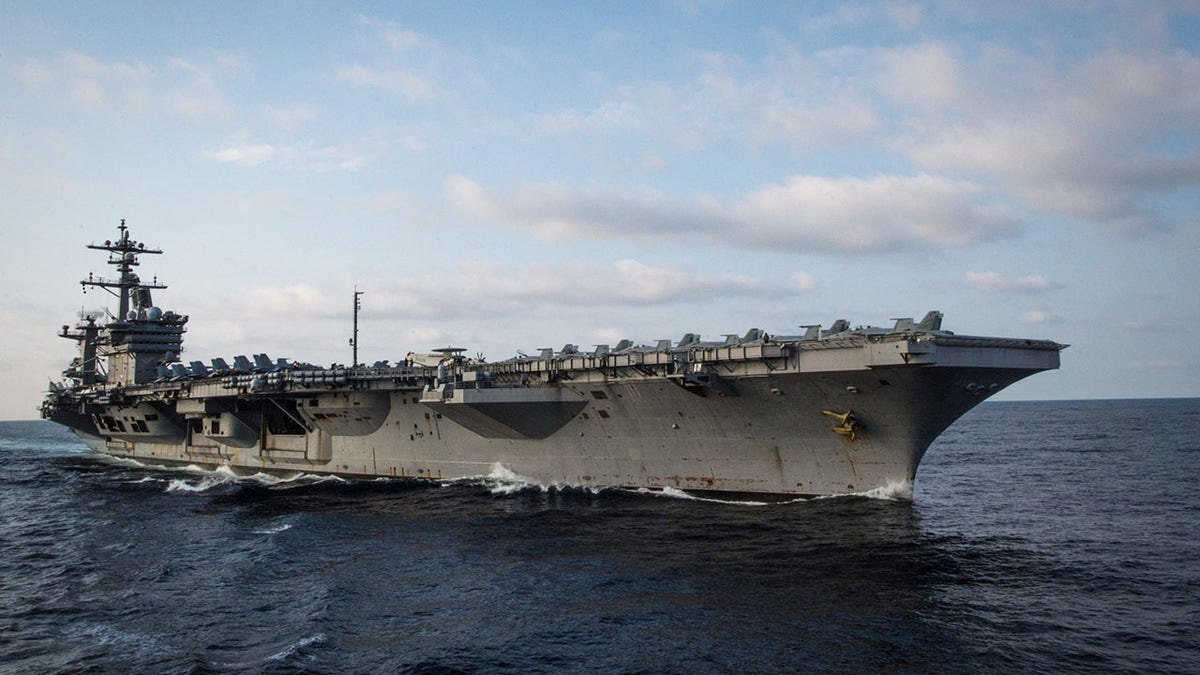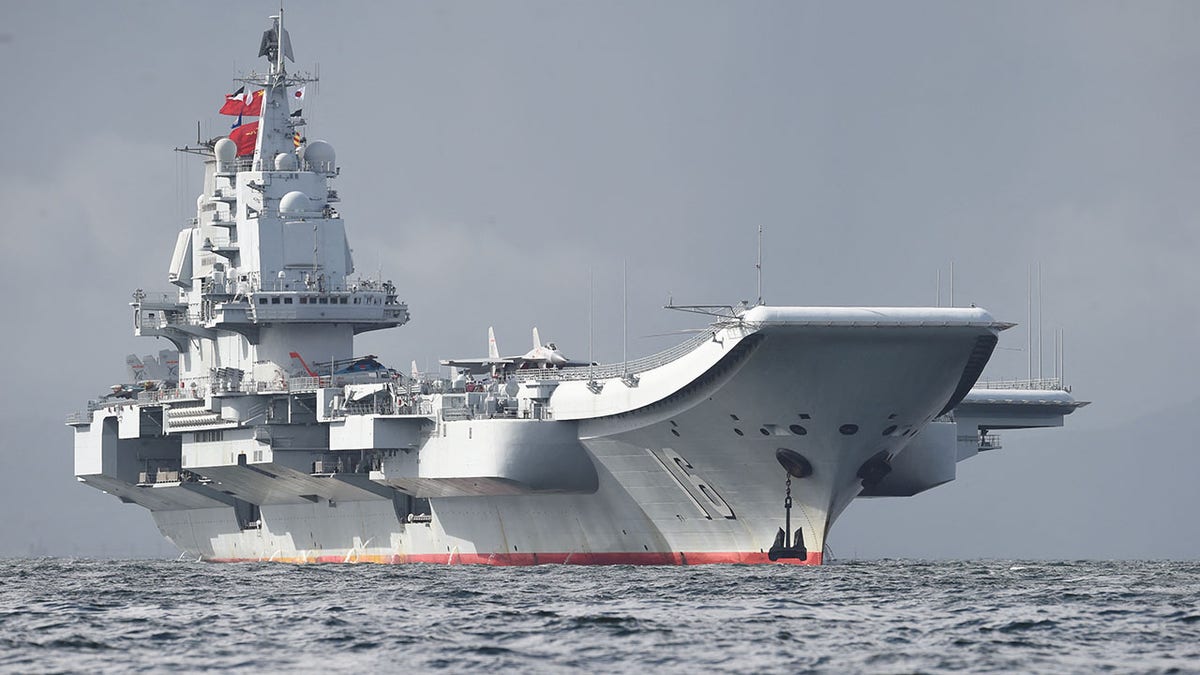Russia and China don't want the US to have influence in the Middle East: Dan Senor
Former foreign policy adviser Dan Senor breaks down the Middle East conflict on 'The Story.'
U.S. lawmakers have sent a letter of warning to the U.S. Navy saying the country could be wholly unprepared for a possible conflict should the military follow through with a plan to move fuel from Hawaii to storage facilities across the Indo-Pacific.
Rep. Mike Gallagher, the Republican chair of the House Select Committee on China, said in a letter to Secretary of the Navy Carlos Del Toro dated Jan. 17 that a plan to redistribute fuel from Hawaii's Red Hill underground bulk storage facility was a "strategic imperative," Reuters reported. He cautioned, however, that the Defense Department had yet to develop a long-term solution.
"It is unclear how exactly the Navy will replace and distribute the aggregate bulk fuel capacity of Red Hill," said Gallagher, R-Wis, noting that U.S. operations in the Pacific would "grind to a halt" without a logistics network to ship the oil then to ensure ease of access.
"The Navy appears to be short – by several dozen – ships that will be needed to transport and deliver fuel to our bases and forces operating across the Indo-Pacific," he continued. "We must address potential weaknesses in our logistical supply lines, while we still have the time to do so."

Scaffolding covers the Statue of Freedom atop the U.S. Capitol dome on September 27, 2023 in Washington, DC. House Speaker Kevin McCarthy (R-CA) continues to have difficulty finding a legislative path that would prevent the federal government from partially shutting down at midnight on September 30 and would also not jeopardize his speakership. (Anna Moneymaker/Getty Images)
In October 2023, the Pentagon revealed the Red Hill storage facility at Joint Base Pearl Harbor-Hickam suffered a leak that contaminated the water systems. It then began draining the 1940s-era facility, saying the fuel would be loaded by ship and transported to existing support sites. This process is expected to take several years.
CHINA SAYS US STRIKES IN YEMEN 'UNLIKELY' TO REACH DESIRED GOALS: 'CONTRADICTORY AND IRRESPONSIBLE'
In Gallagher’s letter, the Republican lawmaker cited a 2016 Defense Department determination that it would need 86 tankers for moving such equipment. He requested that Del Toro explain to the committee whether the department had enough forward fuel storage facilities and would have access to refinery capacity for operations in the Indo-Pacific.

U.S. aircraft carrier USS Carl Vinson approaches USNS Rappahannock (not shown) to perform an underway replenishment in the Pacific Ocean on May 27, 2017. Rappahannock is a Military Sealift Command ship that aides the U.S. Navy mission by delivering food, fuel and supplies to Navy vessels, thusly extending the Navy vessel's ability to stay at sea. Picture taken on on May 27, 2017. (Torrey W. Lee/Courtesy U.S. Navy/Handout via REUTERS)
Gallagher also asked the secretary whether the Navy had identified secure locations to build replacement facilities for Red Hill, and whether it had plans to integrate facilities of allies and partners in redistributing fuel.
A Navy spokesperson affirmed the secretary would respond to the letter accordingly.
CLICK HERE TO GET THE FOX NEWS APP
"As with all congressional correspondence, the Department of the Navy will respond, as appropriate. We have nothing additional to provide at this time," the spokesperson said, per Reuters.

China's sole aircraft carrier, the Liaoning, arrives in Hong Kong waters on July 7, 2017, less than a week after a high-profile visit by president Xi Jinping. - China's national defence ministry had said the Liaoning, named after a northeastern Chinese province, was part of a flotilla on a "routine training mission" and would make a port of call in the former British colony. (ANTHONY WALLACE/AFP via Getty Images)
U.S. military experts continue to warn that the U.S. is unprepared to respond to China’s hegemonic ambitions in the Indo-Pacific, which include seizing territories, facilitating trade negotiations and managing trade routes, and expanding its operational control over disputed waters.
These experts have warned of gaps in U.S. defenses as China, which now has more naval vessels than the United States, continues to dramatically expand its military.
Reuters contributed to this report.










































